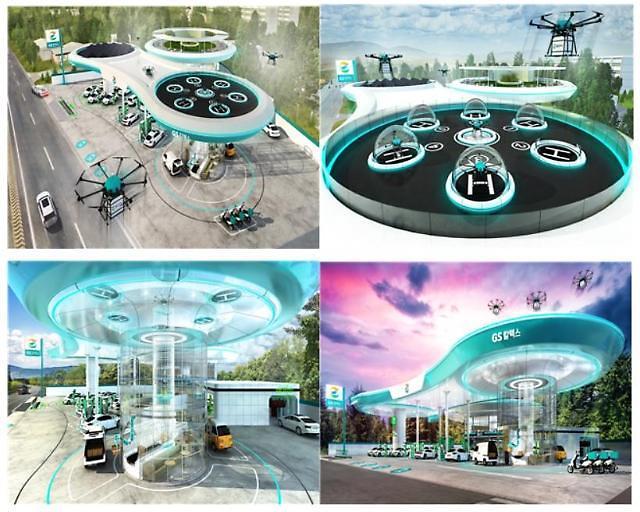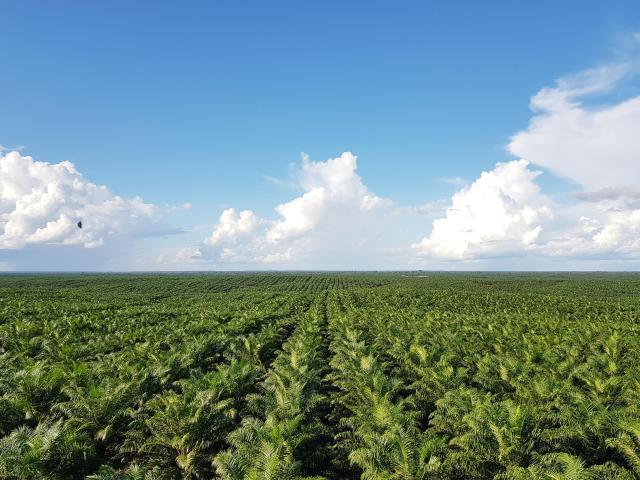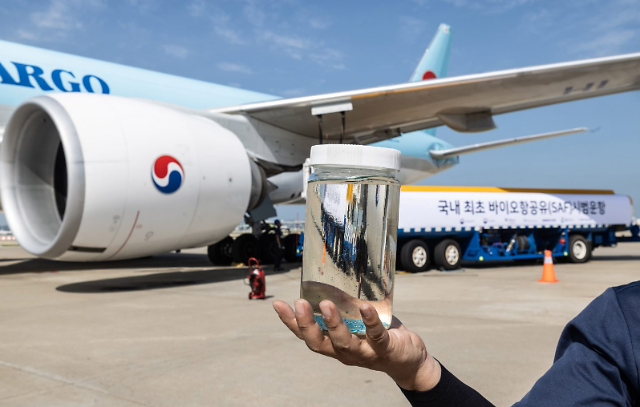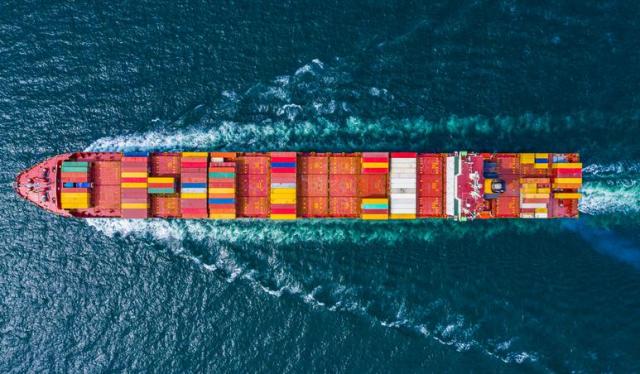
This file picture shows concept images of GS Caltex's future refueling stations that also play the role of logistics hub [Courtesy of GS Caltex]
The refiner will build a total lifestyle complex called "Energy Plus Building" that houses an office block, an urban park area and electric vehicle (EV) charging facilities. "We redefine gas stations as a new urban lifestyle space," GS Caltex said in a statement on October 30, suggesting conventional gas stations can be turned into a new energy refueling space with restaurants.
GS Caltex broke ground to turn an iconic 50-year-old gas station in central Seoul into a 13-story lifestyle refueling complex. "We have to strengthen our competitiveness through innovation amid rapid changes that take place in the future mobility industry," the refiner said, adding it would make efforts to provide customers with new experiences.
The lifestyle refueling complex is part of GS Caltex's blueprint to utilize a nationwide network of gas stations as a logistics hub for drone delivery, small parcel delivery and car-sharing delivery services. GS Caltex gas stations will also house hydrogen fuel and electricity charging service platforms. In September, the refiner partnered with Lotte Rental, a major car rental service company, to provide an EV charging service for rental cars using existing car chargers.
Earlier this year, GS Caltex demonstrated the use of delivery drones to carry lunchboxes and drinks from a gas station that served as the last-mile logistics hub in the southern resort island of Jeju. Drones carrying a payload of about five kilograms (11 pounds) flew about 750 meters (0.46 miles) to deliver lunch boxes to students at an elementary school nearby.
The demonstration was part of a 35.2 billion won ($31 million) government project to develop technology and logistics infrastructure so that drones can be adopted by logistics services to deliver parcels.
South Korea is undergoing changes in its clean energy infrastructure led by major refiners. There are about 17,000 chargers, many of them installed on public car parks and administrative complexes. Because EV owners should be approved by local residents to set up chargers inside apartment parking lots, the demand for EV chargers with easy accessibility is very high.
Other companies are ready to ride the bandwagon for the future with next-generation refueling services. SK Energy, a refinery arm of SK Group, would install rapid EV chargers on gas stations. CJ Hello, the internet and telecommunication service wing of CJ Group, partnered with Posco ICT on July 4 to set up EV chargers at apartment complexes.




